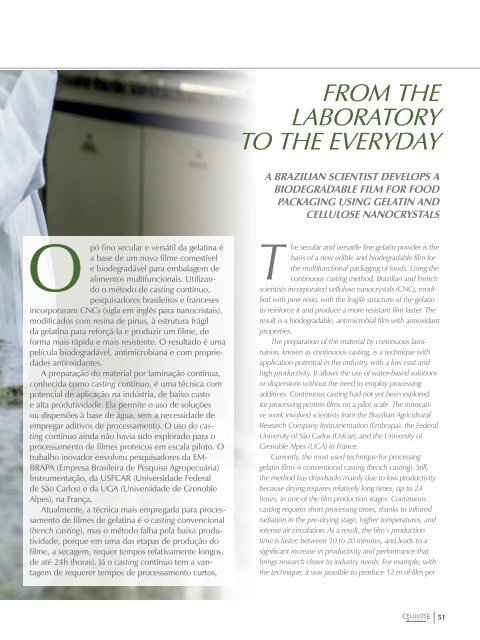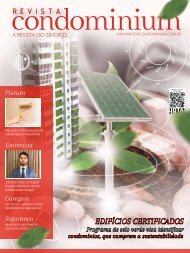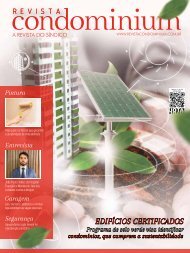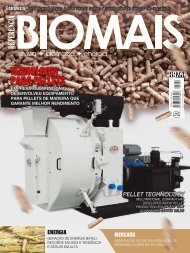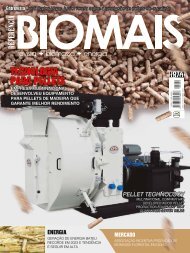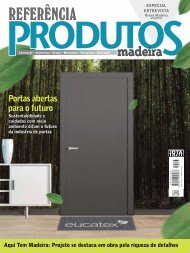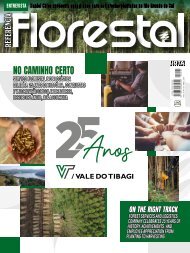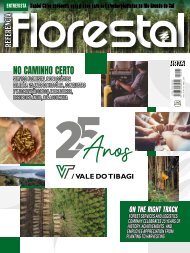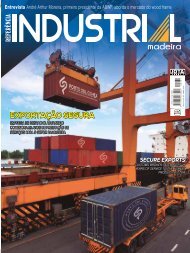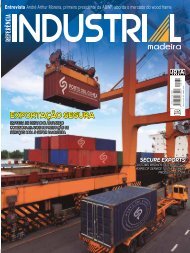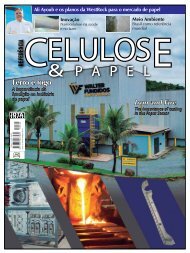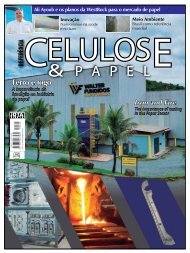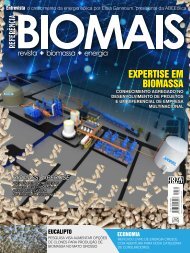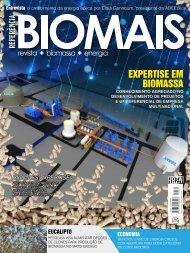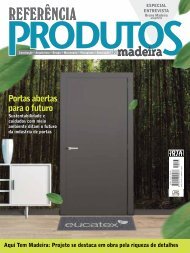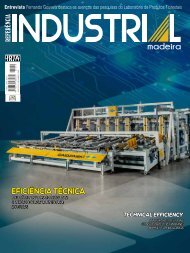Create successful ePaper yourself
Turn your PDF publications into a flip-book with our unique Google optimized e-Paper software.
FROM THE<br />
LABORATORY<br />
TO THE EVERYDAY<br />
A BRAZILIAN SCIENTIST DEVELOPS A<br />
BIODEGRADABLE FILM FOR FOOD<br />
PACKAGING USING GELATIN AND<br />
CELLULOSE NANOCRYSTALS<br />
Opó fino secular e versátil da gelatina é<br />
a base de um novo filme comestível<br />
e biodegradável para embalagem de<br />
alimentos multifuncionais. Utilizando<br />
o método de casting contínuo,<br />
pesquisadores brasileiros e franceses<br />
incorporaram CNCs (sigla em inglês para nanocristais),<br />
modificados com resina de pinus, à estrutura frágil<br />
da gelatina para reforçá-la e produzir um filme, de<br />
forma mais rápida e mais resistente. O resultado é uma<br />
película biodegradável, antimicrobiana e com propriedades<br />
antioxidantes.<br />
A preparação do material por laminação contínua,<br />
conhecida como casting contínuo, é uma técnica com<br />
potencial de aplicação na indústria, de baixo custo<br />
e alta produtividade. Ela permite o uso de soluções<br />
ou dispersões à base de água, sem a necessidade de<br />
empregar aditivos de processamento. O uso do casting<br />
contínuo ainda não havia sido explorado para o<br />
processamento de filmes proteicos em escala piloto. O<br />
trabalho inovador envolveu pesquisadores da EM-<br />
BRAPA (Empresa Brasileira de Pesquisa Agropecuária)<br />
Instrumentação, da USFCAR (Universidade Federal<br />
de São Carlos) e da UGA (Universidade de Grenoble<br />
Alpes), na França.<br />
Atualmente, a técnica mais empregada para processamento<br />
de filmes de gelatina é o casting convencional<br />
(bench casting), mas o método falha pela baixa produtividade,<br />
porque em uma das etapas de produção do<br />
filme, a secagem, requer tempos relativamente longos,<br />
de até 24h (horas). Já o casting contínuo tem a vantagem<br />
de requerer tempos de processamento curtos,<br />
T<br />
he secular and versatile fine gelatin powder is the<br />
basis of a new edible and biodegradable film for<br />
the multifunctional packaging of foods. Using the<br />
continuous casting method, Brazilian and French<br />
scientists incorporated cellulose nanocrystals (CNC), modified<br />
with pine resin, with the fragile structure of the gelatin<br />
to reinforce it and produce a more resistant film faster. The<br />
result is a biodegradable, antimicrobial film with antioxidant<br />
properties.<br />
The preparation of the material by continuous lamination,<br />
known as continuous casting, is a technique with<br />
application potential in the industry, with a low cost and<br />
high productivity. It allows the use of water-based solutions<br />
or dispersions without the need to employ processing<br />
additives. Continuous casting had not yet been explored<br />
for processing protein films on a pilot scale. The innovative<br />
work involved scientists from the Brazilian Agricultural<br />
Research Company Instrumentation (Embrapa), the Federal<br />
University of São Carlos (Usfcar), and the University of<br />
Grenoble Alpes (UGA) in France.<br />
Currently, the most used technique for processing<br />
gelatin films is conventional casting (bench casting). Still,<br />
the method has drawbacks mainly due to low productivity<br />
because drying requires relatively long times, up to 24<br />
hours, in one of the film production stages. Continuous<br />
casting requires short processing times, thanks to infrared<br />
radiation in the pre-drying stage, higher temperatures, and<br />
intense air circulation. As a result, the film’s production<br />
time is faster, between 10 to 20 minutes, and leads to a<br />
significant increase in productivity and performance that<br />
brings research closer to industry needs. For example, with<br />
the technique, it was possible to produce 12 m of film per<br />
51


